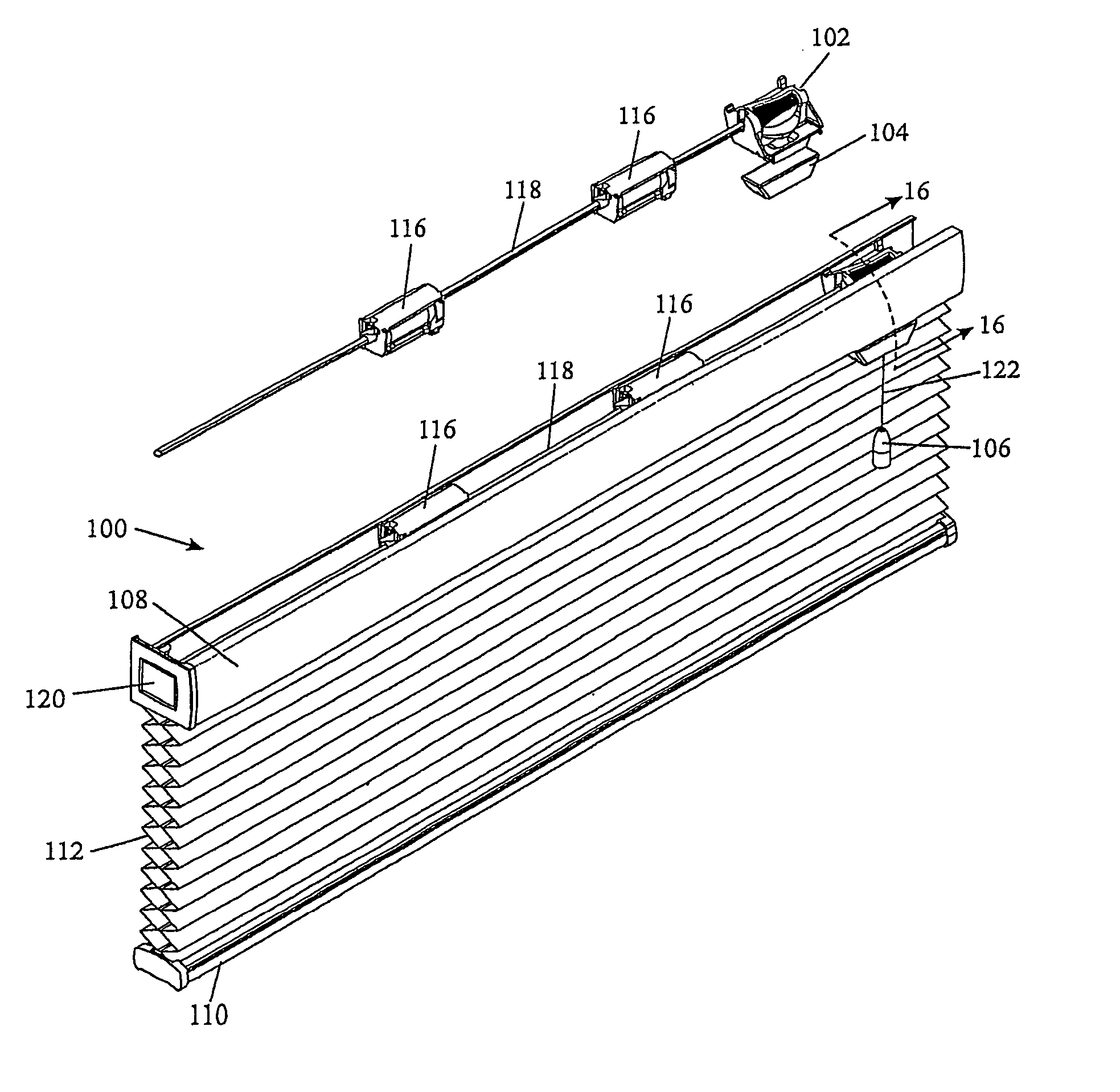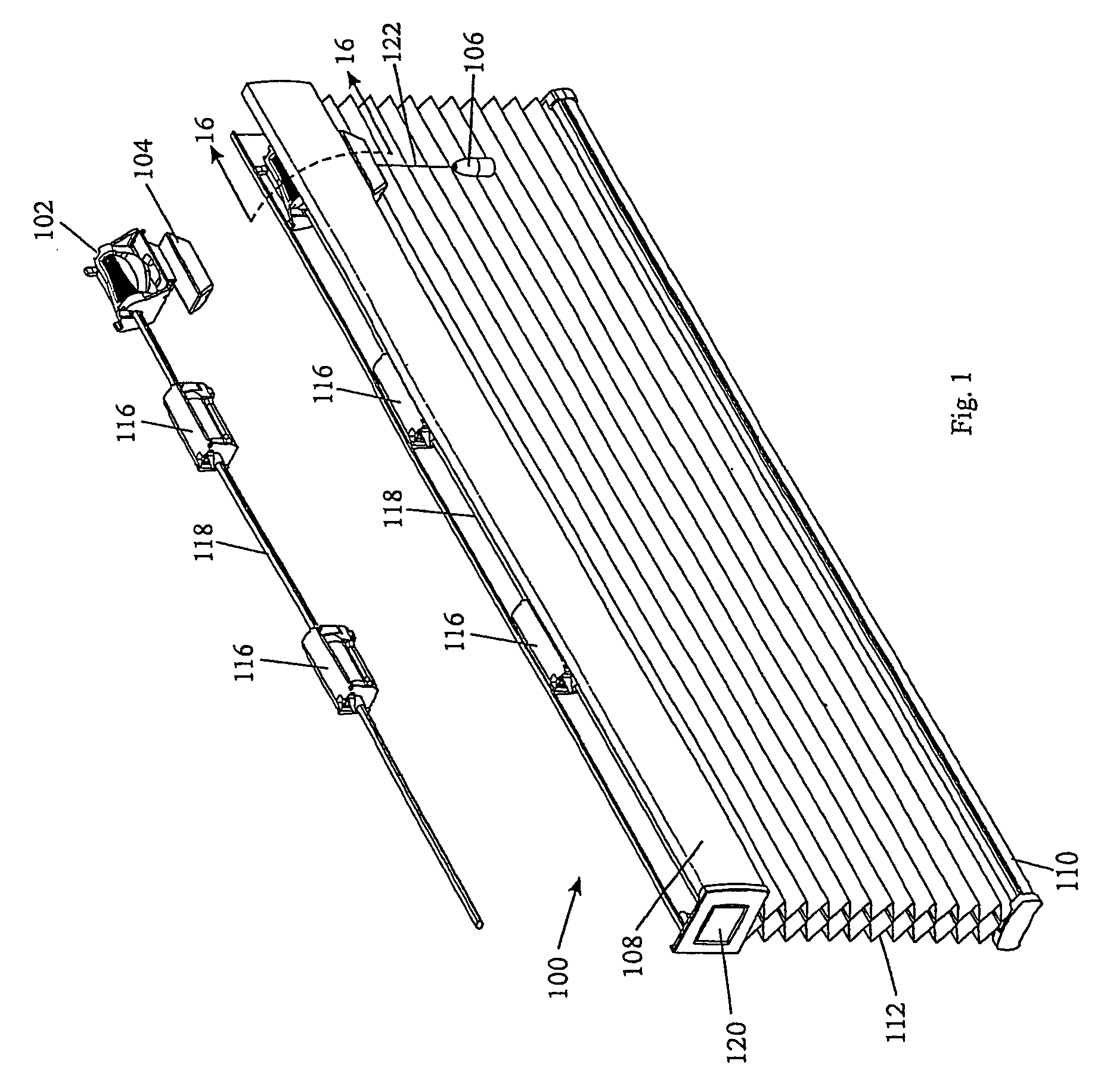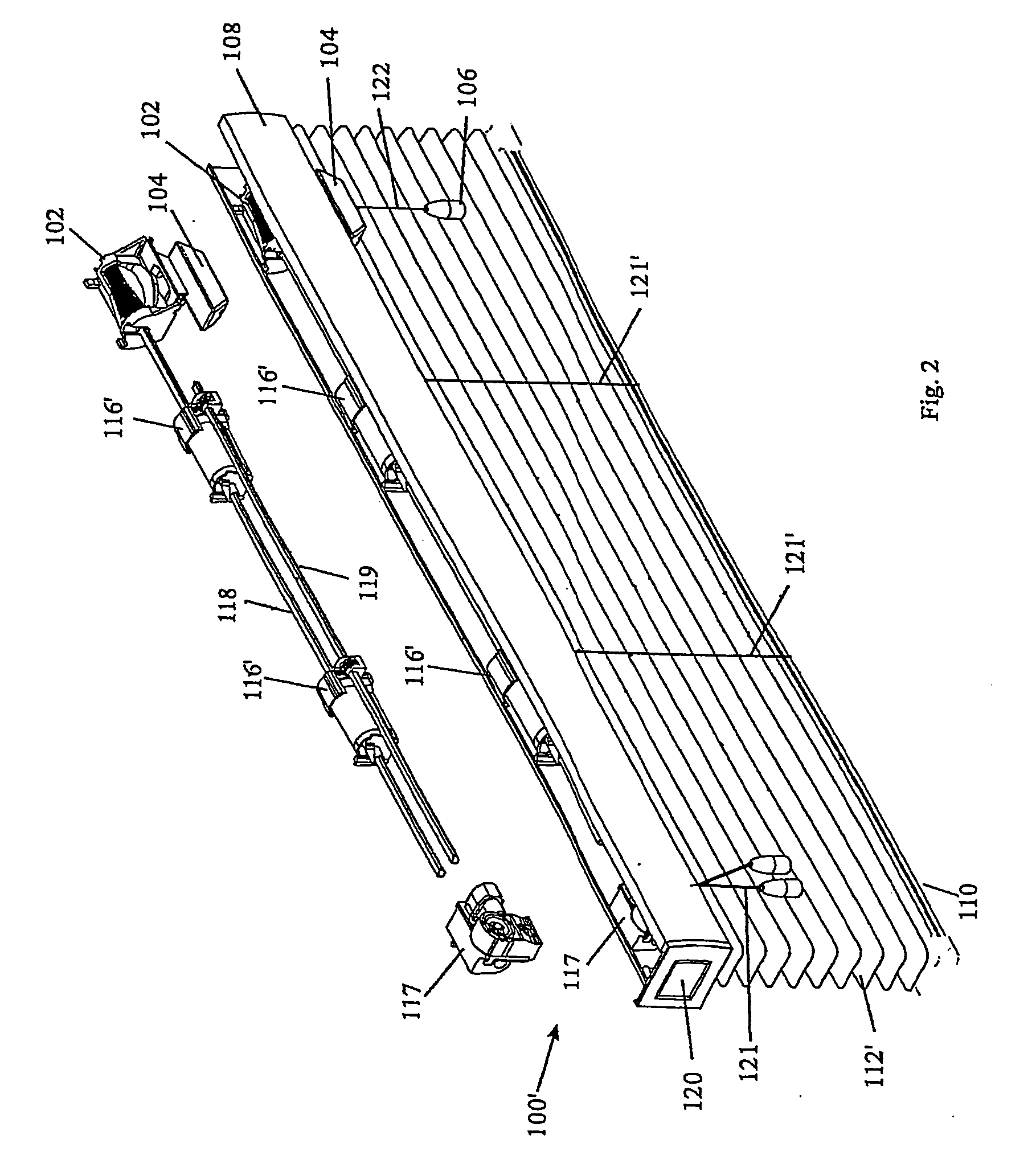Drive for coverings for architectural openings
a technology for driving covers and openings, applied in the direction of door/window protective devices, shutters/movable grilles, transportation and packaging, etc., can solve the problems of cords in the cord drive, cords may drag on the floor, and are difficult to reach
- Summary
- Abstract
- Description
- Claims
- Application Information
AI Technical Summary
Benefits of technology
Problems solved by technology
Method used
Image
Examples
first embodiment
[0230]FIG. 1 is a partially exploded, perspective view of a cellular shade 100 utilizing a cone drive 102 with a roller lock mechanism 104 and a tassel weight 106 (illustrated in further detail in FIGS. 11 through 22) to raise or lower the shade (retracting and extending the expandable material), and to hold the shade in place where the user wants it to remain.
[0231] The shade 100 of FIG. 1 includes a head rail 108, a bottom rail 110, and a cellular shade structure 112 suspended from the head rail 108 and attached to both the head rail 108 and the bottom rail 110. Lift cords 114 (not shown in this view) are attached to the bottom rail 110 and to lift stations 116 such that when the lift rod 118 rotates, the lift spools on the lift stations 116 also rotate, and the lift cords 114 wrap onto or unwrap from the lift stations 116 to raise or lower the bottom rail 110 and thus raise or lower the shade 100. These lift stations 116 and their operating principles are disclosed in U.S. Pat. N...
second embodiment
[0298] Only a relatively small force is required to engage the cord 122 onto the capstan 184 such that no slippage occurs. In the present embodiment, a weight of less than 4 ounces can hold the cord 122 taut onto the capstan 184 even against a 15 pound force acting in the opposite direction to lower the window covering. As explained below with respect to a second embodiment involving a locking dog, this is an important consideration, as only a small frictional force is required of the locking dog to hold the window covering locked in place, and this small force is not enough to fray the drive cord 122.
[0299]FIG. 2 shows another embodiment of a window covering 100′ made in accordance with the present invention. In this embodiment, the window covering is a blind 100′, and it includes elements already described with respect to the cellular product 100, such as the cone drive 102, the roller lock mechanism 104, the tassel weight 106, the lift rod 118 and lift and tilt stations 116′ moun...
embodiment 100
[0326] As can be seen in FIG. 43, the wand assembly 284 defines a continuous passageway 322, 312, 304 allowing the drive cord 122 to extend from the handle 286 to the roller lock mechanism 104″. As the handle 286 is pulled down by the operator, the web 318 of the handle pushes apart the projecting legs 310 of the inner extrusion 294, displacing them just far enough apart for the handle 286 to slide through. Since the drive cord 122 is tied off to the bottom of the inner cylindrical portion 320 of the handle 286, the cord 122 is also pulled down, having an effect similar to pulling on the tassel weight 106 in the first window covering embodiment 100 discussed earlier.
[0327] Pulling down on the handle 286 causes the roller lock 132 to shift down, allowing it to rotate freely. The drive cord 122 wraps onto and unwraps from the capstan 184 as the roller lock 132 rotates, and the cord 122 unwraps from the drive cone 124, causing the drive cone 124 and the lift rod 118 to rotate. This cau...
PUM
 Login to View More
Login to View More Abstract
Description
Claims
Application Information
 Login to View More
Login to View More - R&D
- Intellectual Property
- Life Sciences
- Materials
- Tech Scout
- Unparalleled Data Quality
- Higher Quality Content
- 60% Fewer Hallucinations
Browse by: Latest US Patents, China's latest patents, Technical Efficacy Thesaurus, Application Domain, Technology Topic, Popular Technical Reports.
© 2025 PatSnap. All rights reserved.Legal|Privacy policy|Modern Slavery Act Transparency Statement|Sitemap|About US| Contact US: help@patsnap.com



